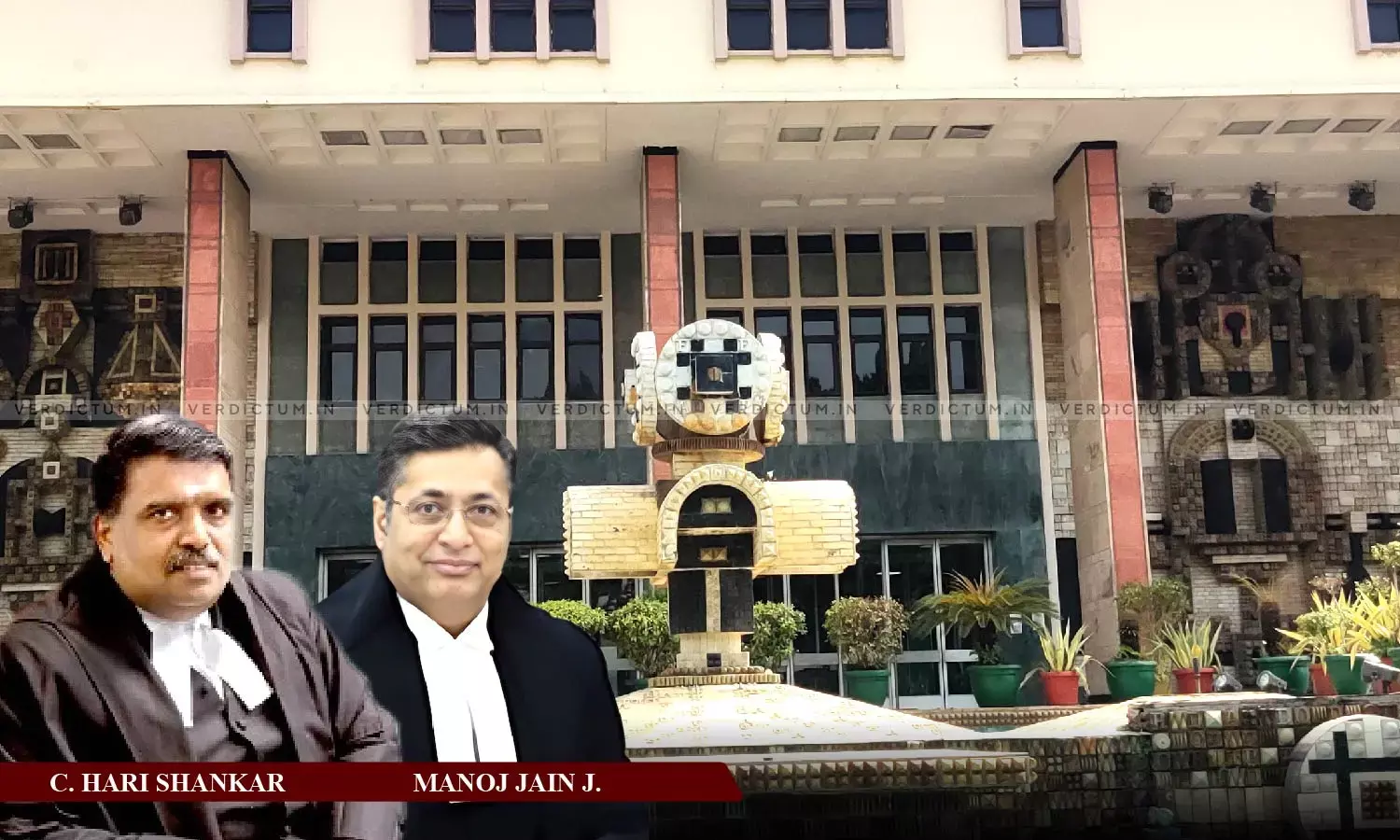Nothing In PoSH Act Limits Scope Only To Cases Where Woman Employee Is Sexually Harassed By Another Employee Of Same Office: Delhi HC

The Delhi High Court has held that there is nothing in the PoSH Act i.e., Sexual Harassment of Women at Workplace (Prevention, Prohibition and Redressal) Act, 2013 that limits its scope only to cases where a woman employee is sexually harassed by another employee working in her own office.
A Division Bench comprising Justice C. Hari Shankar and Justice Manoj Jain observed, “There is absolutely nothing, in the SHW Act, which limits its scope only to cases where a woman employee is sexually harassed by another employee working in her own office, and excepts its application where the delinquent employee is employed elsewhere. The learned Tribunal has also held so, and we completely agree. We have, nonetheless, perused the provisions invoked by Mr Bharadwaj to discern whether any such exception can be read into the SHW Act, by implication, and we are convinced that the answer has to be in the negative.”
The Bench said that as per Section 2(m) of the PoSH Act, in order to make its provisions meaningful and applicable even in a case where the alleged perpetrator of sexual harassment is an employee of another department, the definition of employer under Section 2(g)(i) has to be read as including the employer of the department where the alleged perpetrator of sexual harassment is working.
Senior Advocate Arun Bhardwaj with Advocate R.K. Saini represented the petitioner while CGSC Vineet Dhanda represented the respondents.
Brief Facts -
A writ petition was directed against the judgment of the Central Administrative Tribunal (CAT) and the proceedings emanated from a complaint addressed by an officer in the Department of Food and Public Distribution, Ministry of Consumer and Public Distribution, alleging that the petitioner, who was a 2010 Batch officer of the Indian Revenue Service (IRS), had sexually harassed her. The complaint was presented by the complainant before the Internal Complaints Committee (ICC) constituted under Section 9 of the PoSH Act in the wake of the judgment of the Supreme Court in Vishaka v. State of Rajasthan (1997) 7 SCC 323.
On receiving a meeting notice from the said ICC, scheduling a hearing on the complaint of the complainant, and calling on the petitioner to appear therein, the petitioner, instead of appearing in the hearing, moved the Tribunal questioning the jurisdiction of the ICC to examine the complaint of the complainant. The Tribunal rejected the said challenge and accordingly dismissed his plea aggrieved by which the petitioner approached the High Court.
The High Court after hearing the contentions of the counsel noted, “Equalizing of the sexes in every aspect of life is, therefore, a constitutional imperative. The working environment is required to be as safe and secure for women, as it is for men. Even an apprehension, by a woman, that her safety might be compromised or endangered in the workplace is, therefore, abhorrent to our constitutional ethos. … The provisions of the SHW Act have necessarily to be interpreted in the line of this constitutional imperative. The Court is loath to accord, to the SHW Act, any interpretation which would frustrate its objects and purposes or which would result in a manifestly arbitrary or unjust result, or which would result in underplaying any of its avowed objectives.”
The question before the Court was that if a woman employee in one department of the Government of India is sexually harassed by an employee of another department, would she, or would she not, be entitled to invoke the Sexual Harassment of Women at Workplace (Prevention, Prohibition and Redressal) Act, 2013 (the SHW Act)?
The Court in the above regard observed, “The inquiry is still at the stage of issuance of notice by the ICC to the petitioner to appear before it. We are, therefore, still at the Section 11 stage. What has to be seen, therefore, is essentially whether the ICC of the complainant’s department had the jurisdiction to issue notice to the petitioner under Section 11(1) or whether it was foreclosed from doing so, solely because the petitioner was not an employee of the complainant’s department.”
The Court said that Section 13 of the Act cannot be pressed into service by the petitioner as a ground to challenge the findings of the Tribunal. It further said that issuance of notice to the petitioner by ICC cannot be regarded as an exercise devoid of jurisdiction.
“As in the case of Section 13, we see no reason why action under clause (h) of Section 19 cannot be taken by the employer who has the jurisdiction to do so. In fact, clause (h) of Section 19, if anything, militates against the stand that Mr Bharadwaj seeks to canvas, as it also applies to cases where the perpetrator of the act of sexual harassment is not an employee”, held the Court.
Accordingly, the Court dismissed the plea and refused to interfere with the findings of the tribunal.
Cause Title- Sohail Malik v. Union of India & Anr. (Neutral Citation: 2023:DHC:4338-DB)


